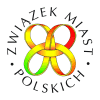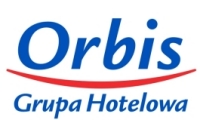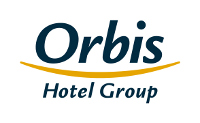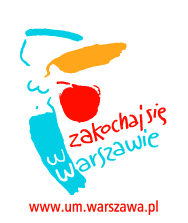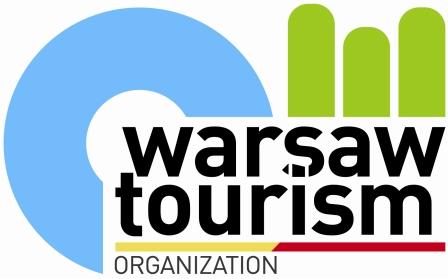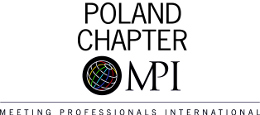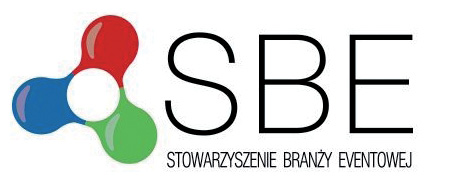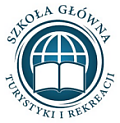Meetings Industry: Opportunities and Obstacles
The Poland Meetings Destination conference organized by The Warsaw Voice multimedia platform kicked off this year’s Meetings Week Poland—a key event for top Polish meetings industry professionals.
All the major aspects of the sector were discussed during the five consecutive days of Meetings Week Poland, starting March 17.
 From March 18, every day of Meetings Week Poland was hosted by one of four major associations in the Meetings, Incentives, Conferences and Exhibitions (MICE) sector in Poland: the Polish Conference and Congress Association (SKKP), Poland Club Meetings Professionals International (MPI), the Polish Event Industry Association (SBE) and the Incentive Travel Organizers Association (SOIT). The Poland Convention Bureau, part of the Polish Tourist Organization, was one of the event’s organizers.
From March 18, every day of Meetings Week Poland was hosted by one of four major associations in the Meetings, Incentives, Conferences and Exhibitions (MICE) sector in Poland: the Polish Conference and Congress Association (SKKP), Poland Club Meetings Professionals International (MPI), the Polish Event Industry Association (SBE) and the Incentive Travel Organizers Association (SOIT). The Poland Convention Bureau, part of the Polish Tourist Organization, was one of the event’s organizers.
To learn more about Meetings Week Poland 2014, go to www.meetingsweek.pl
Poland has everything it takes to become a major player on the European market for meetings, incentives, conferences and events (MICE), but in order to allow the meetings industry to flourish, the country needs an efficient system to secure funds and promote itself as an attractive destination for visitors.
The term “meetings industry” denotes a rapidly growing sector that comprises conventions, conferences, business meetings and trips, incentive trips and programs, trade shows, and promotional and team-building events. A total of 22,300 meetings, conventions and business events were held in Poland in 2012, according to the Poland Meetings & Events Industry Report 2013 released by the Poland Convention Bureau of the Polish Tourist Organization. The events provided jobs for 11,400 people and generated over zl.600 million in government revenue.
According to Rafał Szmytke, president of the Polish Tourist Organization, Poland is becoming an increasingly attractive destination for both domestic and international events, owing to improving transportation links with the rest of the world and a growing number of hotels, conference rooms, convention and exhibition centers and other venues suitable for such guests.
The report contains data from 15 Polish provinces and examines 22,300 business, cultural and political meetings and other events that took place in Poland in 2012. Almost 80 percent of these were attended by Poles only, the report says, while international meetings accounted for only 16 percent. Events discussed in the report are divided into several categories, and conferences and conventions, at 44.8 percent, constituted the largest group of such events held in Poland in 2012. The second-largest group were incentives, at 21 percent, followed by corporate meetings, at over 18 percent. Trade fairs and exhibitions constituted the smallest group, at just 1,716, or less than 5 percent. The report estimates that participants in the meetings and other events bought a total of 4.5 million room nights, which accounted for 7.3 percent of all room nights at tourist accommodation establishments in Poland in 2012. With an average price of zl.300 per room night, the services were worth a total of zl.1.35 billion.
The Polish tourism sector’s revenues from holding meetings have been on the rise, but they are still low compared with other countries. The recent UK Economic Study report says that the British meetings industry is worth over £58 billion, equivalent to 3 percent of Britain’s GDP and three times more than the agriculture sector. The meetings industry ranks 17th among the top 100 business sectors in Britain, employing over 500,000 people, which is double the number of those who work in the telecommunications sector. According to Magda Antonioli Corigliano, a tourism expert from the Universita Bocconi in Milan, meetings, incentives, conferences and events help drive the tourism industry, but they also stimulate foreign investment. Europe’s meetings industry has been growing fast. The number of meetings held throughout Europe has increased 80 percent over the past decade.
Ready for big events
Experts say Poland’s meetings industry is becoming increasingly professional with steadily developing facilities. In March, Polish meetings industry associations joined forces on a project called Meetings Week Poland, during which the Poland Meetings Destination conference was organized by The Warsaw Voice Conferences, the Ministry of Sports and Tourism, the Polish Tourist Organization and the National Stadium in Warsaw.
 Conference speakers included Katarzyna Sobierajska, an undersecretary of state at the Ministry of Sports and Tourism, who told the conference that Poland is increasingly seen as a responsible partner in holding large events, especially after it hosted the Euro 2012 European soccer championships. According to Sobierajska, business tourism has been growing in Europe and around the world for many years as one of the most profitable branches of the tourism industry. In Poland, business tourism gained momentum after the country joined the EU.
Conference speakers included Katarzyna Sobierajska, an undersecretary of state at the Ministry of Sports and Tourism, who told the conference that Poland is increasingly seen as a responsible partner in holding large events, especially after it hosted the Euro 2012 European soccer championships. According to Sobierajska, business tourism has been growing in Europe and around the world for many years as one of the most profitable branches of the tourism industry. In Poland, business tourism gained momentum after the country joined the EU.
According to the Polish Tourist Organization’s Szmytke, Poland could become a strong competitor for other European countries seeking to attract business tourists. “Many organizers of large meetings still consider Poland to be a little exotic, but they also know it is professionally prepared for hosting events of this kind,” said Szmytke. “Some of the grand events that were recently held in Poland have shown we have good reason to feel proud.”
Ryszard Grobelny, mayor of the western city of Poznań, who presides over the Association of Polish Cities, said, “Poland’s development and stable economy have earned it a reputation as a country that is worth doing business in and worth visiting, for example during big conferences and conventions.”
In part, Poland owes its improving image to efforts that individual cities have taken to build state-of-the-art venues to host large conventions and meetings. “There are times when cities compete with one another to host different events,” said Grobelny. “But in some cases, they should support one another instead, because when the meetings industry grows in Poland, everybody is a winner.”
Examples from other countries show that major events can play a significant role in promoting a destination. A festival, a sports competition or a convention can all bring substantial profits to everybody involved, provided they are organized and advertised in the right way. According to Anna Jędrocha, president of the Conferences and Congresses in Poland Association, local government authorities in Poland tend to underestimate the role meetings and events can play in promoting cities and regions.
An important role in promoting Poland as a destination for international conventions and conferences has been played by the Polish Tourist Organization’s Poland Convention Bureau. The Bureau works with the Conferences and Congresses in Poland Association on the Polish Congress Ambassadors program, which aims to draw congress and convention organizers with the help of prominent Poles who are known internationally. Many other countries have used similar ambassador programs as national marketing tools. “With the help of the program, we have been able to draw many important events to Wrocław,” said Magdalena Piasecka of the Wrocław Convention Bureau.
The Polish Congress Ambassadors program relies on academics and professionals who are members of international associations and organizations. They help promote Poland abroad and work to attract international events to the country. So far, more than 130 people have been appointed as “ambassadors” as part of the program.
Funds for promotion
The future of the meetings industry largely depends on whether Poland manages to develop a system to ensure sufficient funds for promotion. Ideas include a fee collected from tourists and spent entirely on promoting a given region or city.
Such fees have long been collected in many other countries and cities, including Vienna, which has topped league tables of the most popular destinations for international meetings (ICCA and UIA) for several years. Christian Mutschlechner, director of the Vienna Convention Bureau, said that hotels across Vienna levy a fixed charge in order to obtain funds for promotion. Totaling 3.2 percent of the hotel bill, the charge is paid by every hotel guest and allows the Vienna Convention Bureau to collect 24 million euros a year.
 John Heeley, a city marketing expert and author of the book Inside City Tourism—A European Perspective, said that similar fees have been introduced in Berlin, Paris, Rome, Prague and other cities. “Exceptions to the rule are few,” said Heeley. “The cities understand that when you lack the funds for promotion, you are not competitive.”
John Heeley, a city marketing expert and author of the book Inside City Tourism—A European Perspective, said that similar fees have been introduced in Berlin, Paris, Rome, Prague and other cities. “Exceptions to the rule are few,” said Heeley. “The cities understand that when you lack the funds for promotion, you are not competitive.”
Among Poland’s cities, Cracow collects a daily fee from visitors at zl.1.60 and experts believe that if such fees were introduced across Poland, they would total zl.70 million a year, twice the Polish Tourist Organization’s annual budget.
Deputy Marcin Kierwiński from the parliamentary committee on public finances said that, rather than plan far-fetched changes to law, Poland should adjust existing regulations, especially those on local taxes. “The fee should not be treated as an extra tax,” Kierwiński said.
Ireneusz Węgłowski, vice-president of the Orbis hotel group, said hotel managers could accept such fees if these are introduced across the board and guests pay an identical extra charge. “The money should benefit hotels in a given area,” said Węgłowski. “We could accept the fee knowing the money is spent transparently.”
New convention centers
Many new hotels and roads were built ahead of the Euro 2012 soccer championships, hosted by Poland together with Ukraine. Now is the time to build new convention centers, tourism industry professionals say. Several large venues have opened recently and more are nearing completion. These include the Kielce Trade Fairs Congress Center, which opened last August in Kielce. Andrzej Mochoń, CEO of the Kielce Trade Fairs company, says the venue has allowed his company to turn from a trade event organizer into a host of big exhibitions and conventions. “It will also allow us to draw many new visitors to Kielce,” said Mochoń. Last year, the Kielce Trade Fairs Congress Center held 600 conferences. A modular wall system inside the center enables a variety of interior arrangements, so that along with conventions, concerts and large conferences, the new Congress Center can also accommodate seminars, exhibition openings and other low-key events. The center’s largest conference hall can seat 700.
Two other large convention centers will open this year in Cracow and Katowice. The International Conferencing and Entertainment (ICE) Kraków Congress Center will be a modern, multi-purpose venue suitable for hosting conventions, conferences, festivals, concerts, theatrical performances and movie industry events. The ICE will comprise a 2,000-seat amphitheater-style auditorium with a modular stage, a theater house for 600, and a chamber hall with 300 seats. The International Convention Center in Katowice, in turn, will consist of several conference rooms and halls, including a multi-purpose hall for 12,000, allowing for over a dozen events to be held simultaneously.
Slovenian website www.kongres-magazine.eu, a leading forum for the international meetings industry, has put the Polish cities of Cracow and Gdańsk among the 10 most attractive destinations for conferences in Central and Southeastern Europe in 2013. The league table is topped by Prague and Budapest, while Cracow, for years a hugely popular destination among both domestic and international visitors, comes in at number five. Gdańsk ranks ninth. More Polish cities may make it into the league table after more new conference centers open across the country.
A.R.
Orbis Hotel Group Teams up with meeting.pl
At the end of Meetings Week Poland 2014 two of the key partners of this event, Orbis Hotel Group and the meeting.pl website, signed an agreement to work together. Under the deal, all Orbis Hotel Group hotels are now among the several hundred conference facilities available through a specialist application for meetings industry professionals on the www.meeting.pl website.
The agreement was signed by David Henry on behalf of Orbis and by Witold Janczyński, head of Steel Point, the company that runs meeting.pl
The meeting.pl website offers an innovative system enabling users to purchase conference/event services online. Venues offering conference services receive a tool enabling them to prepare a professional proposal within just three minutes. Organizers searching for such services receive access to a detailed comparative analysis encompassing many facilities. The end results include time saved, a fully transparent transaction and the elimination of any inaccuracies in the final order for services.
Orbis Hotel Group currently has 63 hotels in Poland, Lithuania and Latvia. These hotels operate under international brands and in accordance with the latest international standards of the Accor network. Poland’s Orbis chain, which was established in 1920, is a member of the Accor network.




